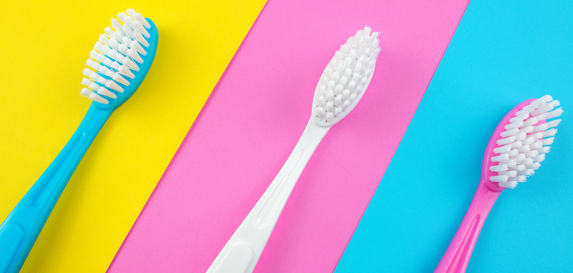
Good oral health and hygiene can help minimize potential dental problems or side effects. Keep your dental care on track during treatment with these oral health tips.
Your dentist may not be the first person who comes to mind when you think about your care plan, but he or she can play an important role in keeping you healthy while you’re in treatment.
In consultation with your oncology care team, your dentist can help:
- Protect your mouth, teeth and jaw bones from possible side effects of radiation or chemotherapy.
- Address potential issues to help ensure your teeth and gums are as healthy as possible before, during and after treatment.
- Prevent dental problems and side effects that can delay your treatment.
See Your Dentist Before Treatment
Your oncologist will likely suggest a visit to your dentist before treatment begins. Your dentist can evaluate your dental health, as well as fix and treat things like cavities, abscesses and gum issues that can create future problems.
You’ll want your mouth as healthy as possible before starting treatment, because some cancers and therapies can make it harder for your body to fight infections.
Your dentist will also let you know if dentures, braces and other oral devices need to be adjusted or temporarily removed.
Protect Your Mouth During Treatment
Good oral hygiene can help lower your risk of a mouth infection and prevent dehydration. Keeping your mouth healthy can also help you avoid problems with chewing that can cause you to lose weight.
Your doctor and dentist can create a plan to keep your mouth healthy. You can help manage your oral health by:
- Tracking and reporting potential side effects: Watch for changes inside your mouth to help identify a problem as soon as it begins. Your care team may recommend remedies, mouth washes or prescribed medications to help soothe sensitivity.
- Brushing gently: Brush your teeth and tongue after each meal and before bedtime. Using a soft toothbrush may help avoid mouth and gum irritation. Your care team may also give you special instructions to reduce the risk of bleeding and infection.
- Flossing gently, every day: Floss regularly to keep your gums healthy. Be sure to avoid areas where your gums are inflamed or sore.
- Rinsing regularly: Rinse with plain water, or try a solution made with 1 teaspoon of baking soda or salt, mixed with 1 quart of water. Just remember: Don’t swallow the solution.
- Steering clear of extreme foods: Hard, extremely cold, very hot, acidic, or spicy foods can make oral issues worse. In this case, eat soft foods that are mild in taste. Foods can be softened with gravy or sauce if they’re hard to swallow. Ask your care team about specific instructions to manage any oral side effects you’re experiencing.
- Eating a low-sugar diet: Skip eating and drinking foods high in sugar, which can lead to tooth decay and cause infection.
- Staying hydrated: Drink water and sugar-free beverages each day. Staying hydrated has many benefits, including relief of dry mouth.
- Skipping alcohol and tobacco: Stop drinking alcohol and using tobacco products. Both can dry out the mouth and make side effects worse.
Oral Care After Cancer Treatment
After treatment, it’s important for you to resume regular appointments with your dentist. This will help you maintain good oral hygiene and help identify any long-term side effects that could develop.
Talking with your care team and following your care plan is the best way to prevent dental problems from getting in the way of your recovery.
